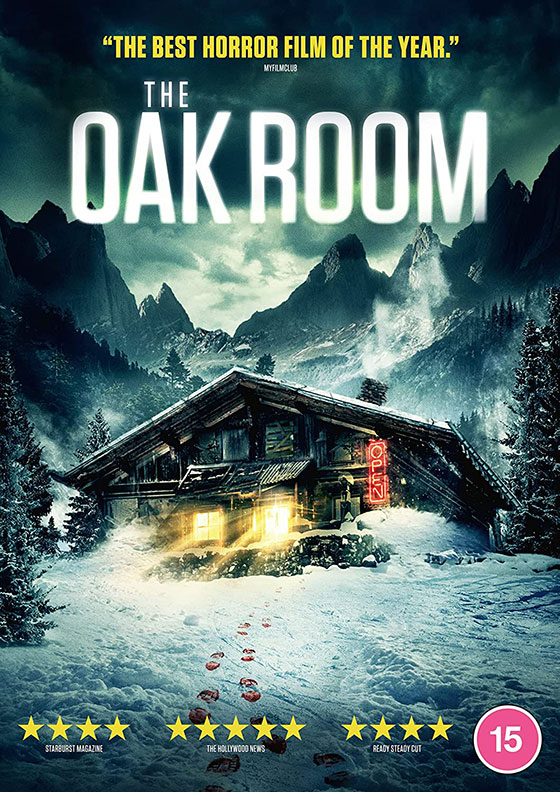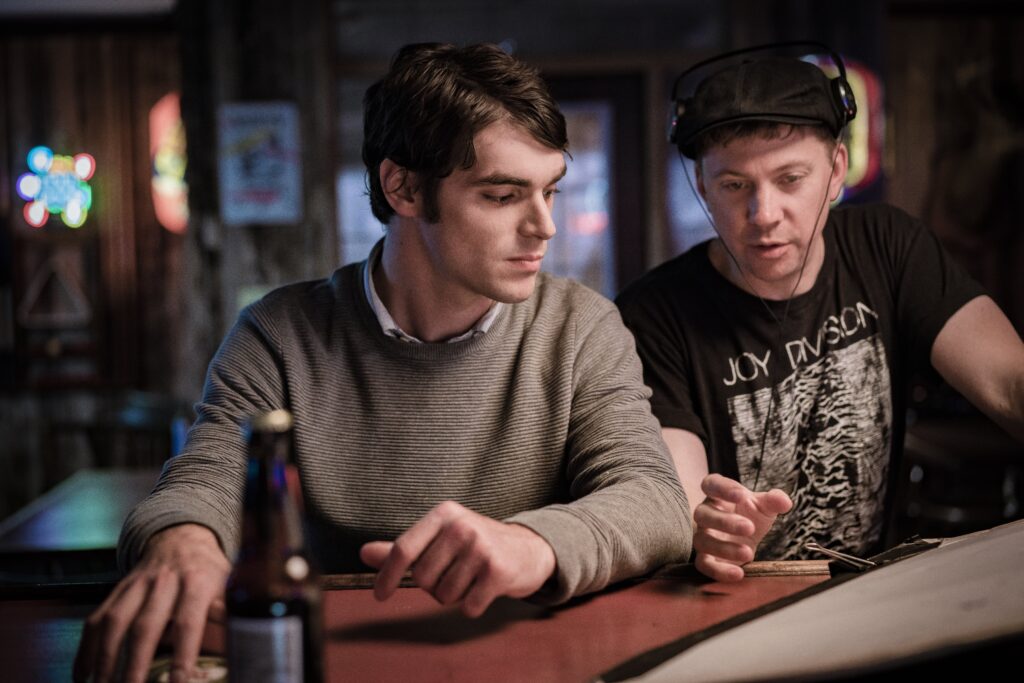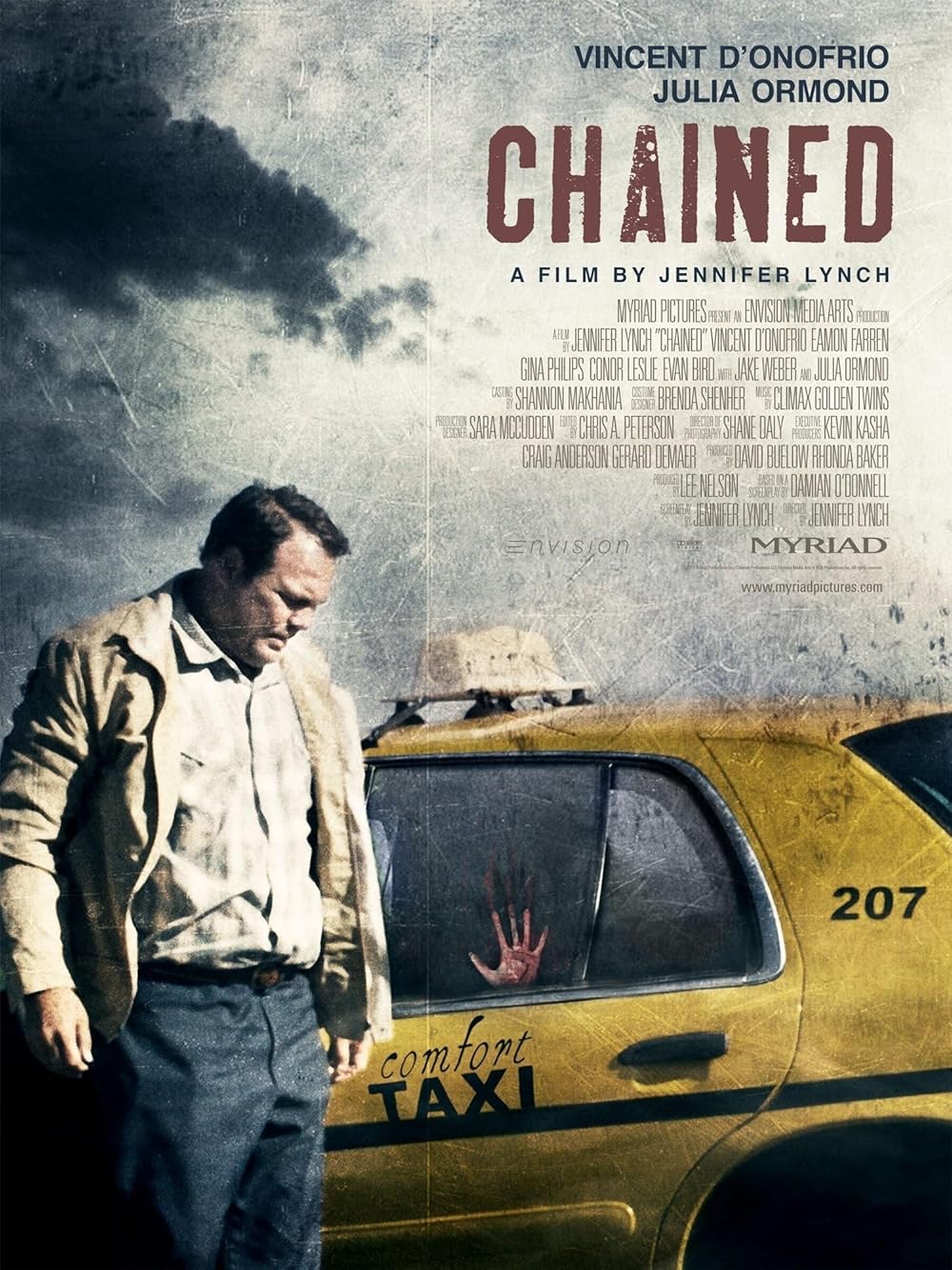Entering the Echo Chamber
Step into a dimly lit bar where stories swirl like snowflakes caught in a gust. In The Oak Room, every word echoes with foreboding. The ending is a fractured mirror—fractured, yet lucid. Its IMDB review tells all

A Snowbound Bar and Its Keeper
The Pool Room in a Blizzard
A desolate Ontario night, snow piling, wind howling. Inside, the Pool Room—a humble bar—stands firm, untouched by the icy tumult.
Paul—the Stoic Bartender
Paul tends his domain with gruff resolve. A man shaped by the frozen north, memory and obligation etched into his every gesture.
Steve’s Return: Arrival with Shadows

A Drifter Back from Oblivion
Three years absent. College dropout, ghost to his past. His return, abrupt—laden with more than frost.
A Debt and an Unsettled Absence
Guilt trails him. Funeral expenses paid by Paul. He owes, yet brings nothing but words.
The Offer: Payment in a Story

A Story in Lieu of Cash
No money. But Steve has something else: an intricate tale—a story entrusted as currency.
The Coaster as Evidence
A battered coaster from The Oak Room. A fragment offered in lieu of credibility.
Nested Tales: Stories within Stories

The First Anecdote: Michael and Richard
Steve speaks of The Oak Room’s bartender, Michael, in conflict with a stranger. A tense exchange, cold and cryptic.
Paul’s Retort: A Fish Tale of Fabrication
Paul fires back with a tall tale—a fish harboring a severed finger. Factless, he admits.
Gordon’s Confession: The Father’s Regret
Paul recounts Gordon’s despair—a wasted life, hitchhiking in hell. A patchwork of regret.
Escalation: Steve Unveils the Macabre
The Grim Vision of The Oak Room
Steve’s final story: Michael beheaded his bartender, killed the next. A doggedly disquieting confession.
A Town Drunk’s Witness
Only Tommy Coward—the town drunk—saw the horror unfold, silent in a corner.
The Name That Freezes Blood: Jimmy Thomson

Mentioned in passing—Jimmy Thomson. Paul’s face goes slack. The narrative pivots toward dread.
The Car in the Storm: Arrival of Doom
Clues in the Watch
A watch glints in headlights. Michael arrives. The vehicle is more than transportation—it is the harbinger.
The Window-lit Terror
A slow approach. Through the frigid pane, Michael’s silhouette frames shattered fate.
The Opening Revisited: Violence Foretold
The film’s first shot—blurry struggle, a fallen bottle—now reveals itself as that moment’s consequence. The bar, once a backdrop, is now battleground.
Steve’s Role: Victim or Villain?
Was he orchestrator, conspirator, or merely opportunist? Ambiguity curls around his grief, resentment, and unsettling composure.
The Oak Room’s Lingering Chill
The ending of The Oak Room doesn’t resolve—it reverberates. In each snowy gust, each silent glance, it whispers: beware the stories you’re told… and those you tell in return.
ALSO READ OUR OTHER STORIES
What is The Oak Room about?
The Oak Room is a slow-burn Canadian thriller set in a snowbound small town. It unfolds as a series of layered stories told within a bar, where each tale bleeds into another, gradually revealing a sinister truth beneath the surface.
Why is the ending of The Oak Room considered ambiguous?
The ending leaves much to interpretation because it never explicitly confirms the fate of certain characters. It relies on implication, metaphor, and the audience’s ability to connect fragmented details from the earlier stories.
Who killed the bartender, Paul?
While the film never directly shows Paul’s killer, the narrative strongly hints that Richard is responsible, and Steve’s arrival at the bar indirectly seals the deal for another act of violence.
What does the final scene signify?
The final scene, where Steve is confronted, mirrors the film’s recurring themes of inevitability and cyclical violence. It suggests that Steve may meet the same fate as others in the interconnected chain of stories.



